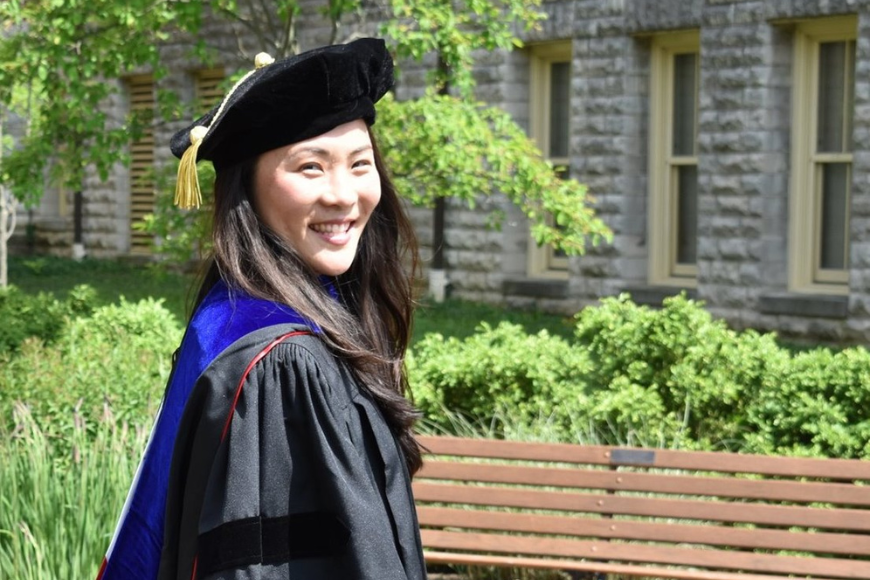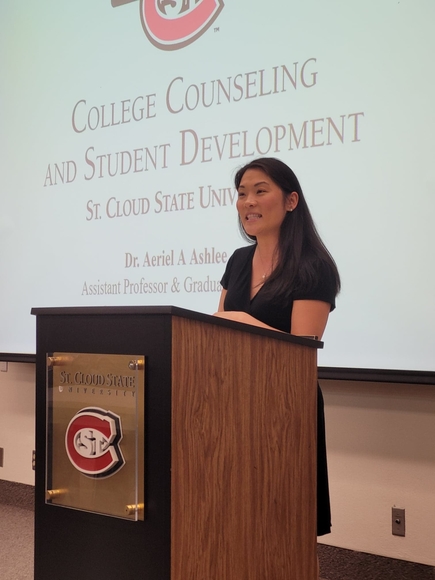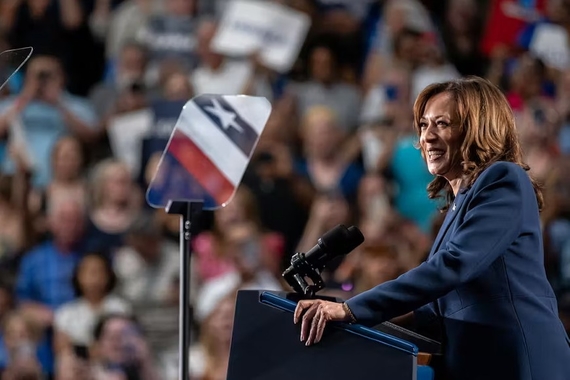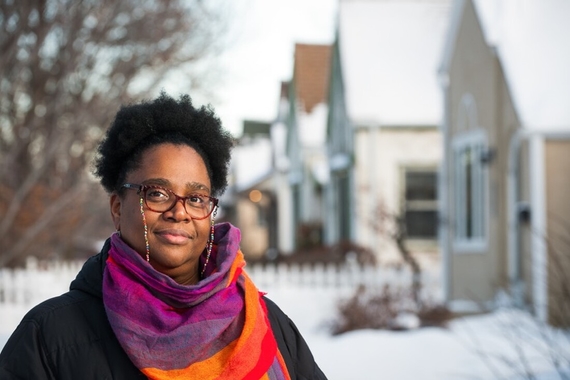The Journey to Belonging
Home away from home
Higher education professional Aeriel A. Ashlee (BA ‘07, journalism) identifies as a first-generation college student…with a caveat. While she was the first in her family to enroll as a traditional college student, her mom enrolled at the University of Minnesota as a nontraditional student when Ashlee was in first grade, a decision that left a lasting impression.
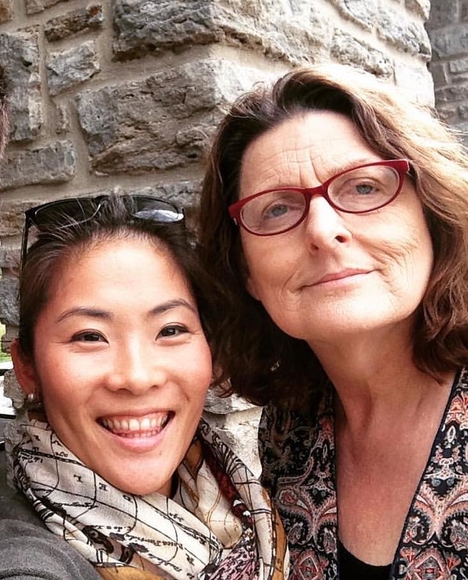
“I have vivid, early memories of going with her to study in the student union, toting along my little backpack and yoga mat,” Ashlee recalled. “Growing up in a single-parent family, I always accompanied her to meet with faculty or fellow students.” In that regard, the UMN campus felt like “an extension of a home base.”
Fast forward several years, Ashlee’s mom earned her degree in environmental studies and Ashlee found her own way back to the University, this time as a PSEO student. By that point, the campus was intimately familiar and the post-secondary option allowed her to earn college credits as a high school junior and senior. When it came time to figure out where she wanted to go to college, the decision was a pragmatic one…with another important catch.
“Like many Minnesotan and midwestern kids, I had big hopes and dreams of going far away to study, but I realized in the application process that college could be expensive,” Ashlee reflected. “I also knew, even as a high school senior, that I wanted to pursue an advanced degree so I made a deal with myself. I would stay home and continue studying at the U, and then I would go away for my advanced degree.”
Finding passion and purpose
The deal stuck and Ashlee enrolled at CLA, immediately immersing herself in all of the academic offerings the college had to offer. She considered political science, broadcast journalism, and global studies before finding her passion in strategic communication with a double minor in political science and business management. She described it as a journey of exploration and self-discovery.
“I remember taking an anthropology class and thinking, I’m going to be an anthropologist! And then taking a sociology course and thinking, I’m going to be a sociologist!” she said. “Through it all, I really felt like I had an interdisciplinary introduction to thinking critically about a lot of different issues and exploring a lot of different academic areas.”
Ashlee also served as a new student weekend leader, an orientation leader, and an orientation coordinator, experiences that piqued, and then solidified, her interest in student affairs. Under the mentorship of staff in the Orientation & First-Year Programs office, Ashlee holistically connected with first-year and transfer students and their families, while building “boundary-breaking relationships” with fellow orientation leaders.
Dr. Amelious Whyte, Jr., then-assistant dean of students and chief of staff, served as Ashlee’s NASPA Undergraduate Fellow Programs mentor and nudged her to consider the field of student affairs, too. “I thought I wanted to be an elected official or a lawyer, do something for the public good, but quickly realized I was not going to law school,” Ashlee laughed. “Amelious was right there to say, you’ve been really involved as a student leader, have you thought about other career opportunities to support students?”
“Complete catalyst of transformation”
After graduating in 2007, Ashlee made good on her deal and went away to graduate school, landing at the University of Maryland, College Park to pursue her master’s of education in counseling and college student personnel. What ensued was a “complete catalyst of transformation.”
As a transracial adoptee, lovingly “raised on lefse and lutefisk,” Ashlee had never quite known where she fit in with other People of Color, nor did she think of herself as a racialized body. Her graduate school application had been entitled “I’m A Twinkie,” and described her racialized experience being perceived as yellow, or Asian, on the outside and yet feeling white – due to being raised in and by her white adoptive family – on the inside as sticky and messy; much like a Twinkie. But by the end of her first semester of graduate school, Ashlee had fully embraced her identity as a Woman of Color.
“Part of it was just living in the DC metro and being around other People of Color, but it was also in my master’s coursework,” she said. “I started to know myself in new ways through the theories that I was reading.”
For the first time in her life, Ashlee also had an Asian American faculty member and mentor. It was through those relationships and her own identity exploration that she began to consider how identity, specifically race, contributes to students’ overall belonging in higher ed spaces and the unique role she was positioned in to advocate for them along the way.
This work led her all across the country – and globe – with positions at Georgetown University, Dartmouth College, and the Semester at Sea program, an experience she shared with her partner Kyle. After their fourteen-ports-in-four-months excursion, the two ended up enrolling in the same education leadership doctoral program at Miami University in Ohio. And this time, Ashlee’s identity was front and center.
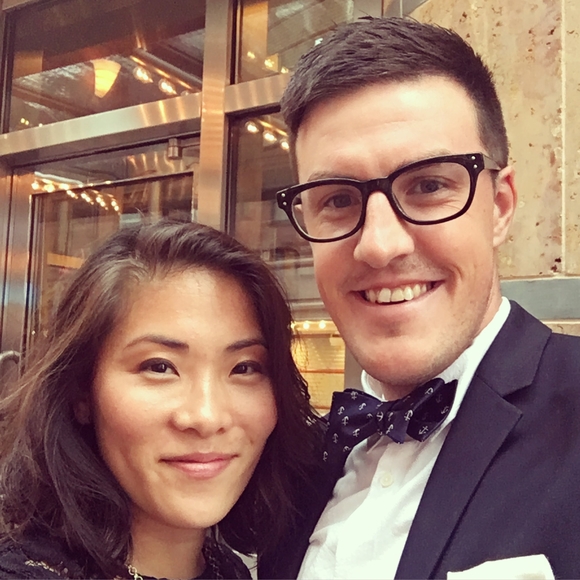
Addressing the asterisk
“When I read about Asian American identity development, there was always this asterisk, as my identity as a transracial adoptee didn’t quite fit,” she said. “I knew I wanted to study transracial adoptees in higher ed; specifically, what are the experiences of transracial adoptees and how can I contribute to writing our story into existence in the field?”
Her dissertation, “Neither, nor, Both, between: Understanding Transracial Asian American Adoptees' Racialized Experiences in College Using Border Theory,” examined how Asian American college students raised in and by white adoptive families describe and make sense of their race in college, and also called on student affairs practitioners to reconsider their existing notions of racial identity.
“There is a brilliance that can come when straddling a border, dancing in and on while navigating the in-betweenness,” Ashlee said. “I wanted to explore that liminality and also uplift it as something that could be very powerful not only for transracial adoptees but for educators in general.”
It’s a lens that continues to inform her approach today. Having fulfilled her dream of a going away experience, Ashlee has since returned to her home state, and resides in Minneapolis with her partner and their four-year-old daughter Azaelea. Ashlee currently serves as an assistant professor and graduate director of the College Counseling and Student Development program at St. Cloud State University where she was also named the institution’s inaugural Faculty Fellow on Belonging.
“Part of what has been really grounding and also inspiring is to think about how my own experiences of belonging and unbelonging have compelled and propelled me to care so deeply about fostering inclusive belongings for others,” Ashlee shared. “Part of my professional journey has been about exploring different facets of my own identity and how who I am impacts how I move through the world. Ultimately, I want to invite others to think more deeply about that, as well.”
Ask Dr. Ashlee
Q: Tell us more about this powerful sentiment, "self work is the key to liberation." How do you define liberation?
A: All oppression is interconnected. Right now, there is a lot of momentum around anti-racism, which is very important given the racialized history of the US. And we can’t focus on just one system because all of the inherited systems of power – racism, sexism, transphobia, ableism – reinforce and uphold one another. Liberation is about thinking innovatively and expansively about how we might redistribute power and redefine our relationships to others in a way that allows for healing. If any one group hopes to be liberated or to experience a reality separate from the systems of power that they’ve inherited, then we have to be invested in the liberation of all.
